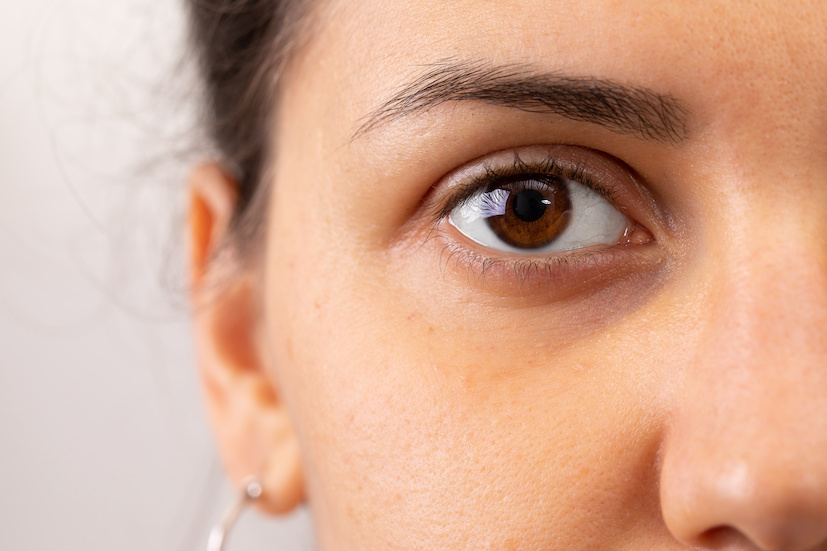Causes of dark circles under the eyes and ways to remove them

Dark circles under the eyes - possible causes and what you can do to remove them
Have you ever struggled with dark circles under your eyes and looked for ways to get rid of them? Dark circles under the eyes can affect the appearance of our face and make us look tired and fatigued. In this article, we'll look at the possible causes of dark circles under the eyes, including vitamin deficiency, iron deficiency and dehydration, and discuss some effective measures you can take to reduce or even eliminate them.
What are dark circles under the eyes?
Dark circles are dark discolourations or shadows under the eyes. They can appear in various forms, including bluish, purplish or brownish tones. Dark circles under the eyes can be caused by a variety of factors and affect both men and women of different ages.
Possible causes of dark circles under the eyes
a) Genetic predisposition:
Dark circles under the eyes can be inherited. If your parents or grandparents have them, it is likely that you are also prone to developing them.
b) Lack of sleep:
Not getting enough sleep can lead to a deterioration in skin health and cause dark circles under the eyes.
c) Skin pigmentation:
People with a higher concentration of melanin, the pigment that gives colour to the skin, tend to have darker under eye circles.
d) Ageing:
As we age, the skin can become thinner, which makes the blood vessels under the eyes more visible and can lead to dark circles under the eyes.
e) Allergies and irritants:
Allergic reactions or irritants such as pollen, dust mites or cosmetics can cause inflammation and swelling around the eyes, which in turn can lead to dark circles under the eyes.
f) Vitamin deficiency:
A deficiency of certain vitamins, especially vitamin K and vitamin C, can lead to dark circles under the eyes. Vitamin K plays an important role in blood clotting and can help to strengthen blood vessels and reduce dark discolouration under the eyes. Vitamin C is a powerful antioxidant that promotes skin health and can improve skin tone.
g) Iron deficiency:
A lack of iron can lead to a reduction in oxygen transport in the body. This can cause the skin under the eyes to become paler and dark circles to become more noticeable.
h) Lack of fluids:
Insufficient fluid intake can lead to dehydration, which can affect skin health. Dry and dehydrated skin can emphasise dark circles under the eyes.
What you can do against dark circles under the eyes
a) Get enough sleep:
One of the most important things you can do to reduce dark circles under your eyes is to get enough sleep. Try to get at least seven to eight hours of sleep every day.
b) Cooling compresses:
Put cold compresses on your eyes to reduce puffiness and improve blood circulation. You can do this with the help of cold water or specially designed eye masks.
c) Healthy diet:
Make sure you eat a balanced diet that is rich in vitamins and antioxidants. These nutrients contribute to skin health and can help reduce dark circles under the eyes. Make sure you get enough vitamin K and vitamin C.
d) Eat a diet rich in iron:
Include iron-rich foods such as green leafy vegetables, pulses, lean meats and nuts in your diet. This can counteract a possible iron deficiency and reduce dark circles under the eyes.
e) Adequate fluid intake:
Drink enough water to keep your body well hydrated. Good hydration can help improve skin elasticity and reduce dark circles under the eyes.
f) Eye care:
Use eye creams or gels specifically designed to reduce dark circles. These products may contain ingredients that improve circulation and promote skin brightening.
g) Sun protection:
Always apply adequate sun protection, especially around the eyes. Exposure to the sun can worsen dark circles under the eyes.
When you should seek professional help
In most cases, dark circles under the eyes can be improved with the above measures. However, if your dark circles are persistent and do not improve, it is advisable to see a dermatologist. A dermatologist can determine the exact cause of your dark circles and recommend specific treatment options.
Conclusion
Dark circles under the eyes can be uncomfortable, but there are several steps you can take to reduce or eliminate them. Make sure you get enough sleep, use cooling compresses and eat a healthy diet. Hydrate your body sufficiently and use special eye care products. Remember that consistent care and patience are required to achieve results. If your dark circles are persistent, you should consult a dermatologist to discuss further treatment options. With the right steps, you can be on your way to a radiant and refreshed look.
Related products


